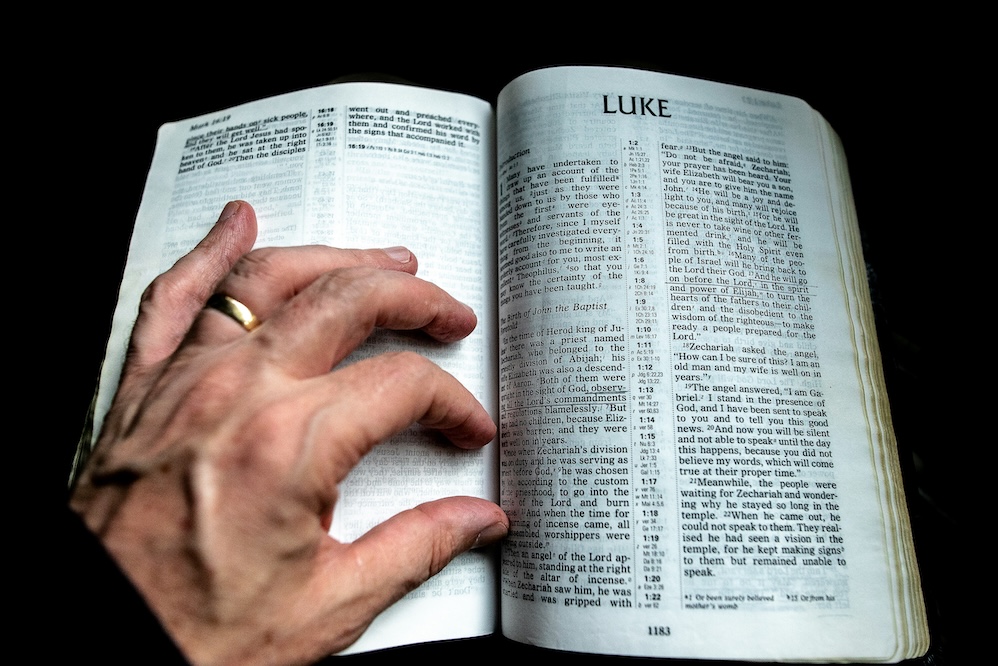Two young fish are swimming along one day when they pass an older fish going in the other direction. “Morning boys,” says the older fish. “How’s the water?” The young fish swim on until, a few moments later, one turns to the other and says, “What the heck is water?”
This point of this common aphorism is that familiarity often blinds us to our environment. Paraphrasing CS Lewis, the most consequential ideas are not the ones we debate but the ones we assume.
The fundamental content of our law is like this. We’re immersed in ideas that we take for granted, notions like equality, dignity, and the rule of law. But these concepts haven’t been obvious to all peoples in all times. In fact, argues the historian Bijan Omrani, we owe these apparently modern ideas to Christian teachings that began shaping our law over a millenium ago.
Here’s an example. Our modern emphasis on the rule of law commits us to the beliefs that no-one is above the law—not the government, not the MPs who make it, and certainly not the wealthy—and that the law should be applied to everyone equally. But a quick glance at history shows how aberrant these beliefs are. Humans tend to seek power and to use it for their own benefit. The counter-intuitive legal principle that the rich and powerful are equal to the poor and powerless is drawn from the teachings of Christianity, as expressed in the law codes of Saxon kings like Alfred. “‘Judge very evenly,’ urged Alfred, following the injunctions of Exodus and Leviticus, ‘judge not one judgement to the rich, another to the poor; nor one to your friend, another to your foe.’”
This is one of Omrani’s many illustrations in his recent book, God is an Englishman: Christianity and the creation of England. Across a wide variety of domains—like time, our relationship to the natural world, art and music—he shows that English ideas and culture fundamentally depend on Christianity. He points, for example, to the great story of the abolition of slavery, a practice found in most cultures but which was made illegal in England and then throughout the British Empire by reformers impelled by the Biblical teaching that, “There is neither Jew nor Gentile, neither slave nor free, nor is there male and female, for you are all one in Christ Jesus”.
Omrani’s chapter on law contains many more illustrations. He shows that the early English kings were inspired by Biblical models of kingship, which made a ruler subject to a higher law than himself. This underpins the great constitutional settlement expressed in the Magna Carta, first signed in 1215 and still a part of modern New Zealand law. As the medieval judge Henry de Bracton put it, “that as a vicar of God the king ought to be under the law is clearly shown by the example of Jesus Christ ... He was willing to be under the Law, ‘that He might redeem those who were under the Law’.”
And by claiming a right to make and enforce the law, the kings made offences against that law a matter of public interest and therefore public justice, rather than the subject of private disputes and feuds.
Omrani also shows that standard features of our criminal law bear a Biblical imprimatur too. The right to remain silent and to avoid self-incrimination rests ultimately on a teaching that confession is due to God but is not owed to others.
Similarly, the presumption of innocence is drawn from the creation account in Genesis. Adam and Eve disobey God by eating forbidden fruit; God knows this but, rather than impose sentence immediately, calls Adam and Eve to Him and questions them, “allowing them to put their case to Him, before He judged them and cast them out”. Thus:
human judges were also bound to summon defendants, to allow them a right to a trial where their pleas and evidence could be heard, and for their innocence to be presumed until proven otherwise by substantive evidence shown and heard in court. The connection of this right with God Himself allowed the commentators to argue later in the Middle Ages that these rights were not something that could be changed or overridden by kings or popes – that they were inalienable, and should be allowed to all.
Christianity hasn’t only shaped constitutional principles and criminal law. Turning to private law, Omrani gives as an example the maxim “pacta sunt servanda,” which means “agreements must be kept”. God binds Himself to agreements with His people; so should those people keep their contracts with one another.
And Lord Atkin’s famous “neighbour principle” in the case of Donoghue v Stevenson, which is the foundation of the modern law of negligence, is based on Jesus’ teaching of the Golden Rule (love your neighour as yourself) and His parable of the Good Samaritan. Omrani opens his chapter with this case and with Lord Atkin’s famous statement, “The rule that you are to love your neighbour becomes in law, you must not injure your neighbour”. This Biblical principle grounded a new legal principle, one that allowed the impoverished plaintiff, May Donoghue, to recover compensation from a brewer whose ginger beer contained a decomposing snail, much to the plaintiff’s gastro-intestinal distress.
As a former outpost of the British Empire, Omrani’s story of English law and culture is also part of New Zealand’s story. And as he makes clear, we cannot understand the legal principles we value unless we also recognise their inextricably Christian origins. When we realise that this is the water we’re swimming in, we can appreciate not only the law but the beliefs that saturate it.



